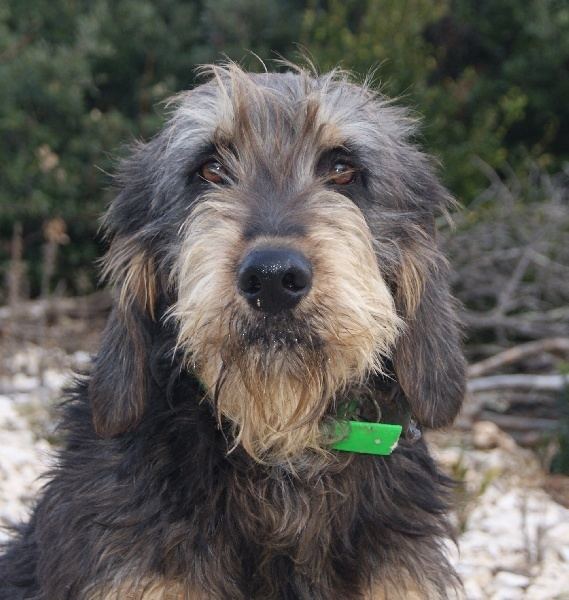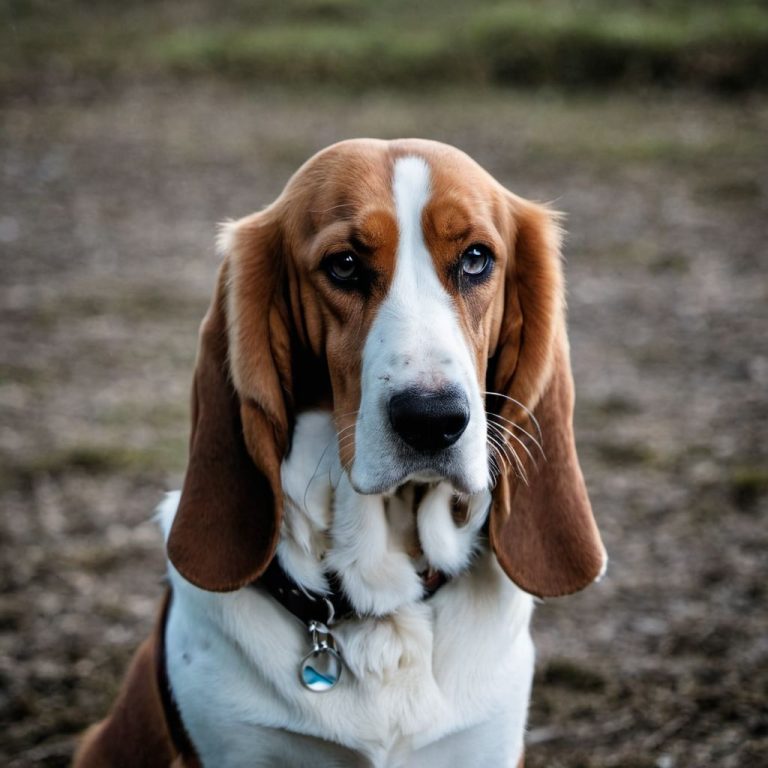ANGLO FRENCH FOX HOUND: A Classic Breed
Discover the elegance and prowess of the Anglo-French Foxhound, a harmonious blend of English and French hunting traditions. Explore the rich history, distinctive characteristics, and exceptional hunting skills that define this unique breed.

The Anglo-French Foxhound is a breed of hunting dog that originated from the crossbreeding of English Foxhounds and French Scenthounds. This hybrid breed was specifically developed for its exceptional scenting abilities and agility in the pursuit of foxes and other game during hunting activities. The Anglo-French Foxhound combines characteristics of both its English and French parent breeds, resulting in a versatile and skilled hunting companion.
Whether you’re an avid hunter or a canine enthusiast, learn more about the Anglo-French Foxhound’s temperament, training requirements, and suitability as a loyal companion. Uncover a perfect balance of agility, intelligence, and sociability in this remarkable breed, celebrated for its exceptional scenting abilities and unwavering loyalty.
Delve into the world of the Anglo-French Foxhound and embark on a journey with a distinguished hunting partner and cherished family member.
History
The history of the Anglo-French Foxhound is intertwined with the development of hunting dogs in both England and France. The breed emerged as a result of intentional crossbreeding between English Foxhounds and French Scent hounds, blending the strengths of each parent breed to create a superior hunting dog.
The English Foxhound has a long history and is known for its endurance, speed, and stamina. Bred for fox hunting in England, these dogs were prized for their ability to work in packs and follow scents with determination.
France has a rich tradition of breeding various scent hound breeds, each with its own specialization. These dogs were developed for hunting in different terrains and climates. French Scenthounds, like the Poitevin or Porcelaine, contributed their keen sense of smell and tracking abilities.
To enhance the hunting capabilities of the dogs, breeders in both England and France began intentionally crossbreeding English Foxhounds with selected French Scenthounds. This crossbreeding aimed to create a dog that possessed the speed and stamina of the English Foxhound combined with the superior scenting abilities of the French Scenthound.
The result of these deliberate crossbreeding efforts led to the establishment of the Anglo-French Foxhound. This new breed retained the desirable traits from both parent breeds, making it an excellent hunting companion with a keen nose and the agility needed to navigate various terrains.
The Anglo-French Foxhound has been historically used in hunting activities, particularly in pursuit of foxes. The breed’s versatility and adaptability in different hunting scenarios contributed to its popularity among hunters.
While the Anglo-French Foxhound may not be as widely recognized as some other breeds, its history is a testament to the collaborative efforts of breeders in England and France to create a skilled and well-rounded hunting dog. The breed continues to be valued for its hunting prowess and is appreciated by those who engage in hunting activities.
Personality
The personality of the Anglo-French Foxhound is shaped by its lineage, combining traits from both the English Foxhound and various French Scenthound breeds. While individual dogs may vary, the following general characteristics are often associated with the personality of the Anglo-French Foxhound:
These dogs are known for their friendly and sociable nature. They often form strong bonds with their human family members and can get along well with other dogs.
As a hunting breed, the Anglo-French Foxhound is typically energetic and requires regular exercise. Engaging in activities such as running, hiking, or playing fetch helps fulfill their physical and mental stimulation needs.
With a blend of English and French hunting heritage, these dogs are often intelligent and can be trained effectively. Providing mental challenges through training sessions and puzzle toys can keep them stimulated.
While trainable, they may exhibit a degree of independence. This characteristic is a reflection of their hunting background, where they needed to make decisions while tracking scents in the field. The breed tends to be curious and may have a strong sense of smell. This curiosity can be channeled positively through activities like scent work or tracking exercises.
The Anglo-French Foxhound is known for its loyalty to its family. They may form strong bonds with their owners and can be protective, making them good watchdogs. These dogs often adapt well to various living environments, provided they receive sufficient exercise and mental stimulation. They can thrive in both rural and urban settings.
Like many hunting breeds, the Anglo-French Foxhound may have a tendency to bark, especially when they sense something unusual. Early training and socialization can help manage this behavior.

Physical Characteristics
Height
- Male 23-28 inches
- Female 21-25 inches
Weight
- Male 55-75 pounds
- Female 45-60 pounds
Coat
He has a short, dense, and smooth coat, with a variety of color patterns.
Color
This breed has a variety of colors like:
- Black
- White
- Tan
- Tri-color patterns
Eyes
Expressive, medium-sized eyes that is dark in color, contributing to an alert and intelligent appearance.
Ears
His eyes are characterized by medium-sized, drooping ears that hang close to the head, contributing to its distinctive appearance.Top of Form
Tail
This hound has a high-set, medium-length tail that is traditionally carried upright, often with a white tip.
Life Span
The average life span is around 10-14 years.
Temperament
The Anglo-French Foxhound is known for its friendly and sociable temperament. Here are key characteristics that often define their behavior:
Generally friendly and sociable, they often get along well with people, children, and other dogs. As a hunting breed, they possess high energy levels and require regular exercise and mental stimulation to stay happy and healthy.
Displaying intelligence, they are usually trainable and responsive to commands. However, they may also exhibit a degree of independence. The breed is often curious and may have a strong sense of smell. This curiosity can make them excellent at scent work or tracking activities.
They tend to form strong bonds with their family and can be loyal and protective, making them good watchdogs. With proper training and socialization, they can adapt well to various living environments, including both rural and urban settings.
Their hunting background contributes to an alert nature, and they may be quick to respond to changes in their environment. Like many hunting breeds, they may have a tendency to bark, especially when they detect something unusual.
Early socialization, consistent training, and providing outlets for their energy are essential for bringing out the best in their temperament. As with any dog, individual temperament can vary, so early exposure to various people, places, and situations is crucial to ensure a well-rounded and confident adult dog.
Grooming
The Anglo-French Foxhound has a short, dense coat that requires relatively low maintenance. Here are some grooming tips for this breed:
Regular brushing, preferably once a week, helps remove loose hair and keeps the coat clean. This breed typically does not shed excessively, but brushing aids in maintaining a healthy coat and reducing the risk of matting.
Bathing is only necessary when the dog gets particularly dirty or starts to develop a noticeable odor. Use a mild dog shampoo to avoid skin irritation, and be sure to thoroughly rinse the coat to remove all shampoo residue.
Check the ears regularly for wax buildup, debris, or signs of infection. Clean the ears with a veterinarian-approved ear cleaning solution if needed.
Keep an eye on the dog’s nails and trim them regularly to prevent overgrowth. Long nails can be uncomfortable for the dog and may affect their gait.
Dental hygiene is essential for all dogs. Brush the dog’s teeth regularly to prevent dental issues, and provide dental chews or toys to help keep teeth clean.
Depending on the geographic location and the dog’s lifestyle, consider using tick and flea prevention measures as recommended by a veterinarian. Schedule a regular veterinary check-up to monitor the overall health of your dog. This includes vaccinations, parasite prevention, and addressing any health concerns promptly.
Since the Anglo-French Foxhound has a short coat, grooming requirements are generally straightforward. However, routine care and attention to their ears, teeth, and nails are crucial for maintaining their overall well-being.
Additionally, the specific grooming needs of individual dogs may vary, so it’s essential to tailor the grooming routine to the unique characteristics and lifestyle of your pet.
Training
Training an Anglo-French Foxhound requires patience, consistency, and positive reinforcement. Here are some training tips for this breed:
Start socializing your puppy early to various people, animals, and environments. This helps develop a well-adjusted and confident adult dog. Begin with basic obedience commands such as sit, stay, come, and down. Use positive reinforcement, including treats, praise, and play, to reward good behavior.
Positive reinforcement is crucial for training this breed. Reward desired behaviors promptly to reinforce them. Avoid harsh punishments, as this can lead to fear or anxiety. Be consistent in your commands and expectations. Use the same cues for each behavior and ensure that all family members are on the same page with training.
Anglo-French Foxhounds may exhibit some independence, so patience is key. Keep training sessions short, engaging, and positive to maintain the dog’s interest. Given their hunting background, leash training is important. Teach your Foxhound to walk on a leash without pulling, and use positive reinforcement when they exhibit good leash manners.
Engage their natural hunting instincts with scent work activities. Use puzzle toys or hide treats for them to find, tapping into their excellent sense of smell. These dogs thrive on mental and physical stimulation. Provide them with toys, interactive games, and activities to keep them mentally engaged and prevent boredom-related behaviors.
Once basic obedience is established, consider more advanced training activities such as agility or obedience competitions. This can provide mental challenges and strengthen the bond between you and your dog. Consider enrolling your Anglo-French Foxhound in professional training classes. This can provide structured training in a controlled environment and help address specific behavioral issues.
Remember that every dog is an individual, and training progress can vary. Tailor your approach to the specific needs and personality of your Anglo-French Foxhound, and always focus on building a positive and trusting relationship. If you encounter challenges, consulting with a professional dog trainer or behaviorist can be beneficial.

Exercise
The Anglo-French Foxhound is an energetic and active breed, given its hunting background. Providing sufficient exercise is crucial for their physical and mental well-being. Here are some exercise recommendations:
Take your Anglo-French Foxhound for daily walks. These should be brisk and of moderate length to help them burn off energy and stay physically fit. Engage in activities like running or jogging, especially if you have a young and energetic Foxhound. They enjoy activities that allow them to use their natural athleticism.
If in a safe and enclosed area, allow your Foxhound off-leash time for free movement and play. Ensure the area is secure to prevent them from wandering off. Engage in interactive play sessions using toys like balls or frisbees. This not only provides physical exercise but also stimulates their mental agility.
Set up an agility course in your backyard or enroll your Foxhound in agility classes. This type of activity provides both physical and mental stimulation. Leverage their strong sense of smell by incorporating scent work activities. Hide treats or toys for them to find, encouraging them to use their natural hunting instincts.
Take your Foxhound on hiking trips, allowing them to explore different terrains and satisfy their curiosity. Ensure they are well-trained to navigate trails safely. If your Foxhound gets along well with other dogs, arrange playdates or trips to a dog park for socialization and additional exercise.
If your Foxhound enjoys water, swimming is an excellent low-impact exercise that provides a full-body workout. Provide puzzle toys or food-dispensing toys to keep them mentally stimulated, especially during times when they are alone.
Nutrition
Proper nutrition is essential for the health and well-being of an Anglo-French Foxhound. Here are some general guidelines for feeding and nutrition:
Choose a high-quality commercial dog food that is appropriate for your dog’s age, size, and activity level. Look for formulations that list meat as the primary ingredient and avoid foods with excessive fillers and artificial additives.
Puppies, adults, and senior dogs have different nutritional requirements. Select a dog food formula that corresponds to your Foxhound’s life stage. Ensure that the dog food contains an adequate amount of high-quality protein, as it is essential for muscle development and overall health. Protein sources may include chicken, beef, fish, or lamb.
Provide a moderate amount of healthy fats for energy. Omega-3 and omega-6 fatty acids contribute to a healthy coat and skin. While dogs don’t require carbohydrates in the same way humans do, a moderate amount of carbohydrates from sources like grains, vegetables, and fruits can be included for energy.
Be mindful of portion sizes to prevent overfeeding and obesity. The amount of food needed can vary based on factors such as age, activity level, and metabolism. Establish a consistent feeding schedule with two meals a day for adult dogs. Puppies and older dogs may require more frequent feedings.
Always provide access to fresh, clean water. Hydration is crucial for overall health. Regularly monitor your Foxhound’s weight and adjust the feeding amounts as needed. Consult with your veterinarian if you notice any significant changes in weight.
It’s advisable to consult with a veterinarian to determine the specific nutritional needs of your individual dog. They can provide guidance on the right type and amount of food based on your Foxhound’s health status and lifestyle.
Avoid feeding your dog human food, especially those that may be toxic to dogs, such as chocolate, onions, garlic, and certain artificial sweeteners. Additionally, if you’re considering a homemade or raw diet, it’s essential to consult with a veterinarian or canine nutritionist to ensure it meets your dog’s nutritional requirements.
Health Concerns
While the Anglo-French Foxhound is generally considered a healthy breed, it’s important to be aware of potential health concerns that can affect individual dogs. Keep in mind that not all dogs will experience these issues, and responsible breeding practices can help mitigate the risk of hereditary conditions. Some health concerns for the Anglo-French Foxhound may include:
Ear Infections
Due to their droopy ears, Foxhounds may be prone to ear infections. Regular cleaning and inspection are essential.
Hip Dysplasia
A genetic condition where the hip joint doesn’t fit into the hip socket properly, leading to arthritis and lameness.
Elbow Dysplasia
This disease leads to malformation of the elbow joint, similar to hip dysplasia, which can result in joint inflammation and lameness.
Gastric Torsion (Bloat)
Deep-chested breeds are more susceptible to gastric torsion, a life-threatening condition where the stomach fills with gas and twists.
Eye Issues
Progressive retinal atrophy (PRA), cataracts, and other eye conditions may occur.
Hypothyroidism
An underactive thyroid gland can lead to weight gain, lethargy, and skin issues.
Epilepsy
Seizures can occur, and while the exact cause may not always be clear, it requires veterinary attention.
Heart Issues
Heart conditions such as heart murmurs or dilated cardiomyopathy may be observed.
Skin Allergies
Some Foxhounds may be prone to skin allergies, which can result in itching, redness, and discomfort.
Joint Issues
Arthritis or other joint problems may affect some individuals, especially as they age.
Dental Issues
Like many breeds, Foxhounds may be susceptible to dental problems such as tartar buildup and periodontal disease.
Obesity
Due to their love for food and potential for reduced activity, some individuals may be prone to obesity, which can contribute to other health issues.
Bottom Line
The Anglo-French Foxhound is a generally healthy breed, but like all dogs, they can be prone to certain health concerns. Regular veterinary check-ups, a balanced diet, proper exercise, and attentive care are crucial for maintaining their well-being.
Responsible breeding practices further contribute to reducing the risk of hereditary conditions. Owners should be aware of potential issues such as ear infections, hip and elbow dysplasia, gastric torsion, eye problems, hypothyroidism, epilepsy, heart issues, skin allergies, joint problems, dental issues, and obesity.
Early detection, proactive healthcare, and a loving environment can help ensure a happy and healthy life for the Anglo-French Foxhound.
FAQs (Frequently Asked Questions)
Q. How should I groom an Anglo-French Foxhound?
Grooming involves regular brushing, occasional bathing, ear cleaning, nail trimming, and dental care. Their short, dense coat requires minimal maintenance.
Q. Is early socialization important for Anglo-French Foxhounds?
Yes, early socialization is crucial to expose them to various people, environments, and situations. This helps in developing a well-adjusted and confident adult dog.
Q. Are Anglo-French Foxhounds good with children and other pets?
Generally, yes. They are known for being sociable and can get along well with children and other pets when properly socialized.
Q. Are there specific training tips for this breed?
Positive reinforcement, consistency, and early training are essential. Engage them in activities that challenge them mentally, and be patient as they may exhibit some independence.
Q. Can Anglo-French Foxhounds be left alone for long periods?
They may not do well being left alone for extended periods. They thrive on companionship and may become bored, leading to undesirable behaviors.
Q. Do they have a strong prey drive?
Yes, due to their hunting background, they may have a strong prey drive. Early training and socialization can help manage this instinct.
Q. What activities can stimulate their minds?
Engage them in activities that involve scent work, puzzle toys, and interactive games to stimulate their intelligent and curious nature.
Q. Are they prone to excessive barking?
Like many hunting breeds, they may have a tendency to bark, especially when detecting something unusual. Training can help manage excessive barking.
Q. Are they suitable for first-time dog owners?
With proper commitment to training, exercise, and care, they can be suitable for first-time owners who are willing to meet their needs.
Q. Do Anglo-French Foxhounds get along with other dogs?
Yes, they are generally sociable and can get along well with other dogs, especially when introduced and socialized properly.
Q. Can Anglo-French Foxhounds live in apartments, or do they need a large space?
While they can adapt to apartment living with sufficient exercise, they thrive in homes with access to a yard or open space where they can engage in physical activities.






